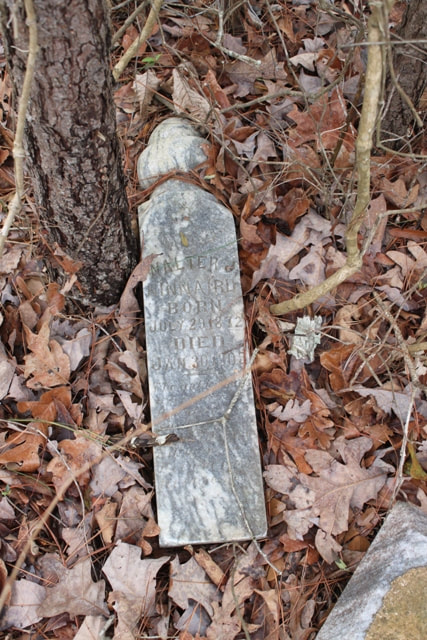When I was a child, my father told me a story that still haunts. The brother of his mother Nicie Elizabeth Kinnaird May was deaf and dumb, in the parlance of the time. My father always referred to him that way and never gave him a name. At an early age he was placed in the care of a Black woman. He lived in a cabin with her on the Kinnaird plantation and over time had at least two children with her. After his death, his caretaker moved north, either to Cleveland or Cincinnati, taking the children with her. My father did not know whether the children survived or whether they took their mother’s last name or their father’s.
I have wondered what prompted my father to tell me this bit of family history. He did prefer to gloss over what he considered the less unpleasant aspects of the past of his family. Could he have thought that I might hear it elsewhere? Could it be that he wanted me to know that I had Black kin but hesitated to tell me of other cousins too close to home?
But newer information casts doubt on aspects of my father’s account. According to a story in a newspaper, in 1905 one Walter J. Kinnaird was shot and killed by one “Allen Wilson, a deaf and dumb mute 73 years old” on Wilson’s plantation “near Wedgeworth.” (Actually the Wilson, Kinnaird, and May properties were north of present-day Sawyerville near where County Road 17 ends in County Road 30. A great-something grandniece of Allen Wilson was the wife of my high school algebra teacher, Edward Lowry.) ) Walter Kinnaird was 35 years old at the time and was the only brother of Nicie Elizabeth to survive until adulthood.
Walter died of his wound 4 days after he was shot. He made a detailed statement to the authorities and “argued most persuasively” that he had no idea why he was shot. He and Wilson had lived on this same Wilson property for four or five years and Walter thought they were good friends.
That detailed statement and persuasive argument suggests that Walter was not deaf and dumb. And surely, if one deaf and dumb man had killed another, that detail would have been in the article.
The newspaper reports suggest that Wilson was a kind and gentle and respected man and no reason seems to ever have been found for his actions.
Questions abound: Was Kinnaird taking care of Wilson? Was Wilson living with, or had lived with, a Black woman and fathered her children? Or was Kinnaird living with said Black woman in a cabin on Wilson’s plantation? Or had Kinnaird lived with a Black woman earlier on the Kinnaird plantation before moving onto Wilson’s plantation? Had that woman and her children been “shipped north” by the Kinnaird parents? Walter, born in 1876, had a brother, Thad, born a year later who died at the age of 11: might it have been Thad who was deaf and dumb, if indeed any of the children were? Answers, however, elude.
But what of my father’s story to me?
One thing I am certain of: he believed his story to be a true one.
But he was 7 when his uncle was killed. His not giving his uncle a name now suggest to me that he did not know this uncle. Possibly he was the proverbial black sheep and the family tried to ignore him. But when a killing like this occurs, people, family members and servants, will talk. I can recall being a little boy sitting quietly and possibly out of sight when the adults were talking and hearing more than the adults thought they were sharing with me. I can easily believe that my father, that young boy, might have heard bits and pieces of this story. Deaf and dumb man. Somebody living with a Black woman. Illegitimate children. Shipped north. Then he put the story together in his mind to the best of his ability. The killing is eliminated. Details of both men become conflated. Skimpy facts are run through a vibrant imagination and emerge as myth, which then becomes truth.
My father would, and did, shade the truth from time to time in matters involving incidents in the May family. However, I do not believe he would have made up such a tale out of whole cloth and told it to me. My sister heard the tale also from a second family member on the occasion of a visit to the Kinnaird cemetery. Is that confirmation of the original story? Or did that family member, younger than my father by some years, hear it from him?
One thing is likely certain: we will never be able to tease out the truth.

 RSS Feed
RSS Feed